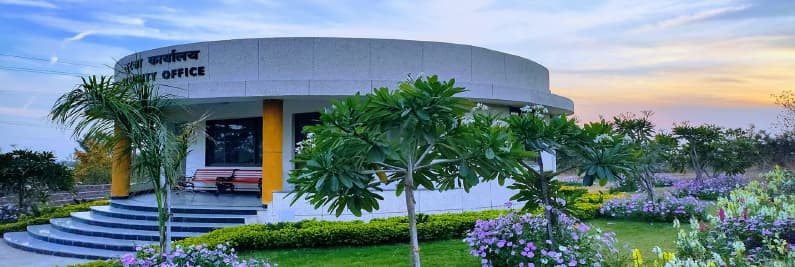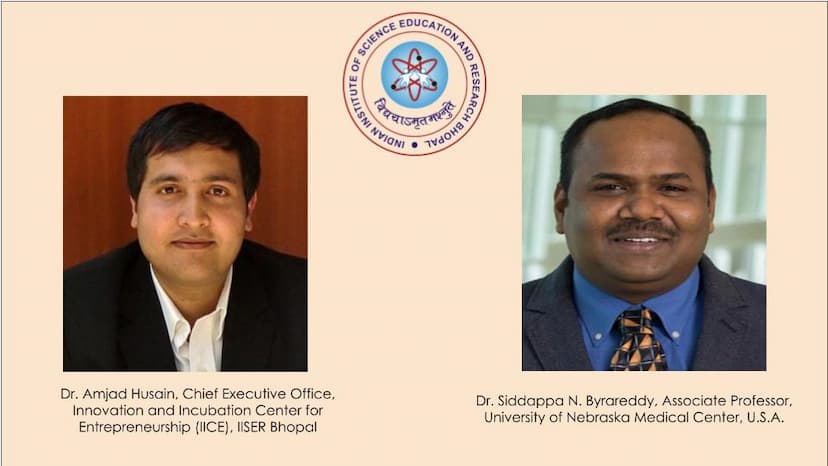IISER Bhopal and UNMC researchers indentify great Rapamycin

IISER Bhopal and University of Nebraska Medical Centre (UNMC, USA) identified ‘Rapamycin’ as a drug that can be repurposed to treat COVID-19.
Currently being used for patients having undergone organ transplantation and certain cancer patients, Rapamycin and its analogues are commonly available in India and abroad, say IISER Bhopal and UNMC researchers.


In a peer-reviewed paper published recently in the reputed International Elsevier journal, Chemico Biological Interactions, IISER Bhopal and UNMC researchers showed that the biochemical working of this drug molecule points to its promise in the treatment of COVID-19.
The paper elaborates on the rationale of repurposing this drug for treating COVID-19 patients.
Since the repurposed drug has gone through the clinical development process for the treatment of other diseases and has already been tested for toxicity, many steps in preclinical and early clinical development can be avoided and the the drug can be directly tested on COVID-19 subjects in phase-II trials, say IISER Bhopal and UNMC researchers.

Speaking about their work Dr. Amjad Hussain of IISER Bhopal said the development of a new drug is time-consuming and cannot be relied on as a solution in combating the immediate pandemic.
Drug repurposing is an attractive solution, wherein, an existing drug used to treat another related or unrelated ailment may be tested against COVID-19, said Dr. Amjad of IISER Bhopal.
IISER Bhopal and UNMC researchers indentify great Rapamycin
An example of such a repurposed drug is Remdesivir. It was originally developed to treat Hepatitis C infection.

The drug has shown limited success in treating COVID-19 patients.
Identification of more such drugs is important given the scale of the pandemic.
Rapamycin works differently from Remdesivir. While the latter targets the virus itself, this Rapamycin targets the host proteins and may resist the infection, say researchers from IISER Bhopal and UNMC.
Dr. Amjad of IISER Bhopal further said using repurposed drug such as Rapamycin that targets mTOR, a central molecule affecting multiple signalling pathways, may yield a significant clinical benefit for the treatment of COVID-19.

One of the main challenges in developing antiviral drugs for COVID-19 has been the extensive mutations that the virus undergoes, which makes one antiviral drug ineffective against another mutant, and the development of drug-resistant strains, say researchers from IISER Bhopal and UNMC.
Treatment with drugs such as Rapamycin will not face that problem because it acts on host proteins and not on the virus.

At a biochemical level, apart from inhibiting protein synthesis, Rapamycin has been known to inhibit pro-inflammatory cytokines.
It is known that severe COVID-19 infection results in an increase in inflammatory cytokines in a process known as the ‘cytokine storm’.
The inhibitory action of Rapamycin towards cytokines also makes it a promising treatment for COVID-19, say researchers from IISER Bhopal and UNMC.
There is another point to Rapamycin, say IISER Bhopal researcher.
Rapamycin is known to reduce obesity through various pathways and this can help in mitigating the severity of COVID-19 effects in obese people.
Also, Rapamycin is known to induce autophagy, a cellular recycling process that helps in eliminating the damaged proteins and delaying ageing, say IISER Bhopal and UNMC researchers.
Given the connection between age and COVID mortality, i.e. more fatalities with older people, the anti-ageing properties of Rapamycin can have protective effects against COVID-10-induced morbidities.
It is interesting to note that there is a worldwide scramble to find drugs for the ongoing COVID-19 pandemic, says IISER Bhopal researcher.
While the commencement of vaccination brings lots of hope and promises for the successful vaccination drive, the need for drugs to treat COVID-19 patients continues to be of paramount importance, not only for now but also for the future.
Worldwide, there are already well-known research groups that are pushing for the Rapamycin trials.
Recently another study got published in the prestigious journal The Lancet-Healthy Longevity that proposed the potential of Rapamycin analogues (rapalogs) to enhance resilience against SARS-CoV-2 infection and reduce the severity of COVID-19.
Although with a successful vaccination drive, the infection may be brought under control, it would likely not disappear.
Currently, there are no universally approved drugs, for the treatment of COVID-19.
About IISER Bhopal
Established by the Ministry of Education in 2008, IISER Bhopal is the youngest of the first five IISERs in India.
IISER is expanded into Indian Institute of Science Education and Research.
In a decade, the Institute has received several distinctions, duly carving out its own position in the national and international arena.
With a vision to provide high quality education to the students and contribute to the society through its research, IISER Bhopal is the first IISER to have been declared by the Ministry of Education for project competition.

Along with this, IISER Bhopal has gained rank 201 in the overall category of the QS Asia Ranking.
The Institute has also been ranked 26 (National Rank, out of 63 in the 1000 Institutes) in the Times Higher Education 2021 Rankings.
S Vishnu Sharmaa now works with collegechalo.com in the news team. His work involves writing articles related to the education sector in India with a keen focus on higher education issues. Journalism has always been a passion for him. He has more than 10 years of enriching experience with various media organizations like Eenadu, Webdunia, News Today, Infodea. He also has a strong interest in writing about defence and railway related issues.







